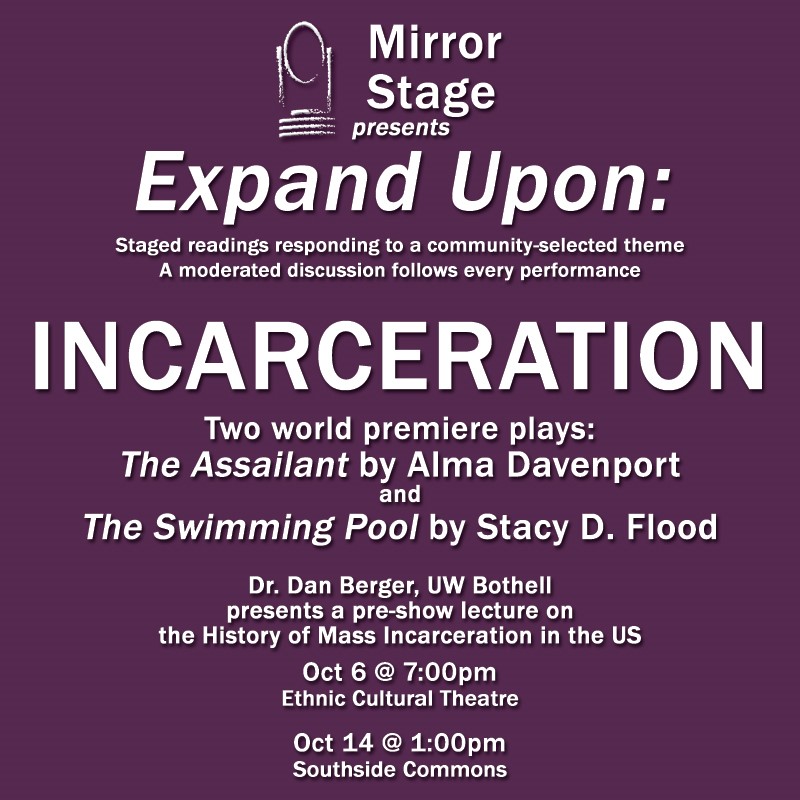Suzanne Cohen directs Expand Upon: Incarceration

Master of Arts in Cultural Studies alum Suzanne Cohen (’15), Managing Artistic Director of Mirror Stage, presents Expand Upon: Incarceration, featuring David Drummond, Rick Dupree, Adria LaMorticella, Pablo Lopez, Corey Spruill, and Benjamin Symons. Additionally, IAS faculty member Dan Berger will deliver pre-show lectures on the History of Mass Incarceration in the United States on Saturday, October 6 at 7:00pm at the Ethnic Cultural Theatre, and Sunday, October 14 at 1:00pm at Southside Commons, only. The on-site box office will open 30 minutes before the lectures are scheduled to begin.
“Theatre That Gets People Talking,” Mirror Stage’s innovative staged reading series, has been engaging the community in examining and discussing topical issues from different perspectives since 2004. Presented without costumes or sets, the emphasis on the text encourages audiences to create their own imagined world inhabited by the play’s characters, increasing empathy and expanding awareness. Following every performance, a moderated discussion with the audience and artists explores the issues raised in more depth.
For the Expand Upon series of staged readings, Mirror Stage commissions two local playwrights to each develop a short play responding to a community-selected theme, using the same multi- generational, multi-racial cast. For the second round of Expand Upon, the community selected the theme Incarceration, and Mirror Stage commissioned playwrights Alma Davenport and Stacy D. Flood. "The Assailant" by Alma Davenport, and "The Swimming Pool" by Stacy D. Flood premiere on October 6 & 7 at the Ethnic Cultural Theatre in Seattle’s University District, and October 13 & 14 at Southside Commons in Columbia City.
Incarceration is one of the main forms of punishment and rehabilitation for the commission of felony and other offenses in the United States. The United States has the largest prison population in the world, and the second-highest per-capita incarceration rate. Prison Industrial Complex (PIC) is a term used to describe the overlapping interests of government and industry that use surveillance, policing and imprisonment as solutions to economic, social and political problems. The PIC is not just prisons, themselves; it is the mutually reinforcing web of relationships between prisons, the probation service, the police, and the courts, as well as all the companies that profit from transporting, feeding and exploiting prisoners, and so forth.

Mirror Stage gratefully acknowledges the support of 4Culture, ArtsWA, the City of Seattle Office of Arts & Culture, Humanities Washington, the National Endowment for the Arts, and the Posner-Wallace Foundation.
